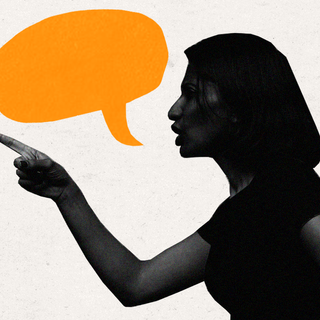
Facebook Halts ‘Instagram Kids’ Amid Criticism Over the App’s Safety for Children
The announcement raised concerns about Instagram’s past failure in protecting children from abuse, targeted ads, and mental health effects.

On Monday, Instagram announced that it would pause the development of ‘Instagram Kids,’ an application designed for young users. Currently, the minimum age to use Instagram is 13 years. Instagram slated the new app to cater to below-13 users.
The company claims that the app will enable young users to access a version specifically designed for them. However, mental health advocates, parents, and lawmakers have uniformly criticized the idea.
While Instagram announced the plan in March, it has now halted its development amid renewed widespread backlash.
Last week, an internal Facebook study revealed Instagram’s negative impact on teen girls’ mental health and body image. The report proved that Facebook, Instagram’s parent company, has always been aware of its detrimental effects on children. The findings added more fuel to the already widespread outcry over ‘Instagram Kids.’
In India, almost every child between ages 8-16 is on social media, according to a 2015 survey. Many claim to have experienced cyber-bullying and over 50% said they would not mind meeting a stranger in real life. Another recent study commissioned by the National Commission for Protection of Child Rights highlighted addiction and social media’s negative psychosocial impacts on young children.
Further, experts have pointed out how children using social media may experience hampered development as they are still growing. “The main areas that are affected by excessive use of technology are the ability to sustain attention, imagination, memory, planning, and organization,” wrote Dr. Sapna Bangar for The Indian Express.
The app aimed to provide an ad-free and age-appropriate platform for children. However, parents and lawmakers pointed out that the company failed to protect children who are already on the app now.
Related on The Swaddle:
In Lockdown Isolation, Children Have Become More Vulnerable to Online Predators, Watchdog Warns
“Facebook has a clear record of failing to protect children on its platform… When it comes to putting people before profits, Facebook has forfeited the benefit of the doubt, and we strongly urge Facebook to abandon its plans to launch a version of Instagram for kids,” U.S. lawmakers said in a statement.
In a letter, child health advocates noted that Instagram feeds on young people’s fear of missing out, and their desire for peer approval. “The platform’s relentless focus on appearance, self-presentation, and branding presents challenges to adolescents’ privacy and wellbeing,” the letter stated.
“Young children are highly persuadable by algorithmic prediction of what they might click on next, and we are very concerned about how automated decision making would determine what children see and experience on a kids’ Instagram platform,” the letter further added.
Privacy concerns abound too. Concerns over Instagram sharing user data with third-party firms are not new, but children stand to be particularly vulnerable. One study recently found that Facebook uses existing data of children aged 13-18 to create profiles to promote harmful interests. These include gambling, smoking, weight loss, and more. Many other reports have stated how minors are vulnerable to sexual abuse on Instagram.
Although the company claims that the kids’ version will address these issues, it is unclear how it will achieve complete safety and privacy.
“The reality is that kids are online. They want to connect with their family and friends, have fun and learn, and we want to help them do that in a way that is safe and age-appropriate,” said Stephanie Otway, a spokesperson for Facebook.
Moreover, advocacy groups are concerned that Instagram will be creating a new need among a younger demographic rather than responding to an existing market. People have leveled similar criticisms against other platforms that launched child-friendly versions, such as YouTube and Facebook Messenger. YouTube Kids has mainly come under scrutiny for excessive product placement in its content.
Addiction is also another critical concern amid concerning findings of young people becoming addicted to social media. This addiction, in turn, heightens the risk of body image issues and disordered eating, according to research.
What also remains unclear is how children will respond to algorithms pushing content their way. The main issue is less about whether the technology allows children to be safe; it is about whether users can trust Facebook. The resounding answer seems to be that they can’t.
Rohitha Naraharisetty is a Senior Associate Editor at The Swaddle. She writes about the intersection of gender, caste, social movements, and pop culture. She can be found on Instagram at @rohitha_97 or on Twitter at @romimacaronii.
Related


How Emotions Alter Our Understanding of Time
